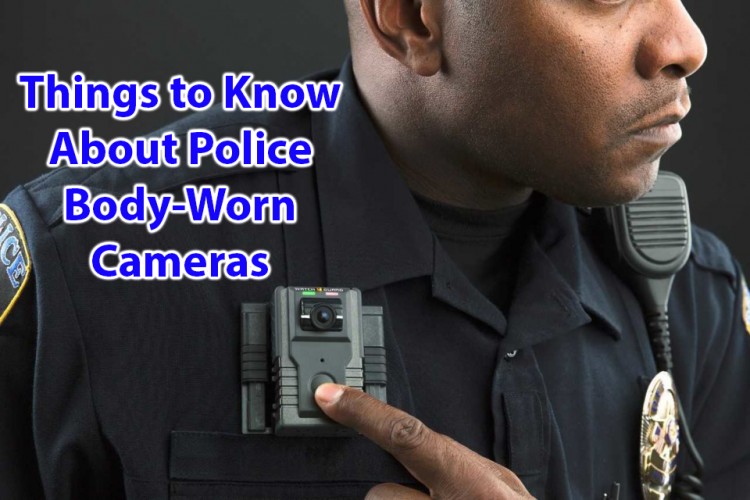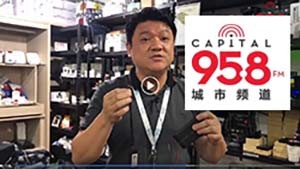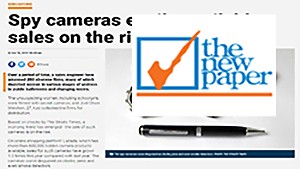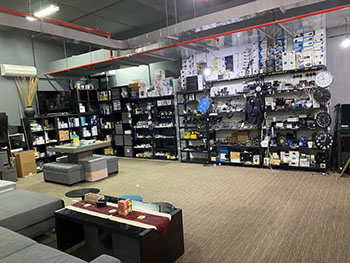5 Things To Know About Police Body Cameras

Body-worn cameras are not entirely new to this generation. We often notice bodyguards and covert operation agents use this for intelligence while on operation. As with any technology, the police body-worn camera are becoming a new trend in modern law enforcement agencies. As agencies gradually proceed with their programs, it essential they look critically into the body-worn camera system and analyze if it’s truly worth it and there is justification for its implementation.
When approached form the public’s view on the matter, it is seen that there is an increase in accountability and transparency of police when on body-worn cams. Studies have shown that behavior and professionalism were seen at its peak, it’s not really new as it is just normal, people naturally tend to behave well when they are constantly aware that they may be under surveillance. They are seen to avoid the use of force when unnecessary or avoiding excessive use of force to apprehend.
Benefits were Drawn by an Officer While on Body-Worn Cameras
It’s no news that many law enforcement agencies have opposing views concerning the body-worn cameras, many feel uncomfortable about wearing it while they work. Some benefits and concerns observed are:
- Having a clear picture of a person’s true attitude, it’s usually a problem when you arrest a punk for misconduct and trespass of the law. Sometimes, these particular ill-mannered individuals would be seen to dress angelic in a suit and talk really calmly. These could be really frustrating but with a body-worn camera, a video shown can easily discredit a farce or charade they might try to pull up. This could be very helpful when it comes to prosecution.
- Unbiased nature of a camera, we naturally trust what we can see with our two eyes, this is perfectly normal. It’s always very easy to produce video evidence to assist a case, you get to take the jury or judge to the street to show them what is happening there. When they see with their own eyes, making a decision becomes very easy for them.
- With the introduction of body worn cameras, it is seen that there has been a drastic decrease in complaint and allegations levied against police officers. People tend to behave more and comply especially when they know there is a chance they are being monitored.
- Drastic reduction in criminal justice law since criminals plead guilty to charges once video evidence has been played for them. Once you’ve been caught in this act can this can be shown easily to anyone, this reduces the possibility or willingness of anyone one defending you since all evidence points otherwise.
Discretion
There has always been a problem of what police should record and should they even record everything? Well, this is a major problem, Body cams have the potential to destroy the relationship a police officer has been building since his arrival at the force. It should also be noted that witnesses at the crime scene love to stay anonymous and would do everything possible to avoid being recorded. Some of this discretion, guides police as to when to use discretion and give parameters that would guide use. There are two main approaches to discretion:
- One requires an officer to records all his contact with the public and not just during calls, this is essential to always even record even informal conversation with the civilians. But according to some laws, requiring a police officer records all of this is undermining the privacy of civilians and trespassing it could be wrong and eventually backfire.
- The other is to require that an officer activate his cam when he is responding to calls for their service. These services could include: searches, traffic, arrests, stops, pursuits and even interrogations. Having an officer record a life crime scene can be really helpful and help solve a criminal case quickly.
Discretion is something very paramount and must be observed, this is very crucial as you can infringe on civilian privacy and this could result in a provocation. It is crucial to note times not to records an event; as such times could be unsafe, impractical or even impossible. This, however, requires officers write documents on why they would be putting their body-worn cameras off.
Privacy
Having body-worn cameras on, have given them ample opportunity of being able to use facial recognition technology to recognize individuals involved in a case. The usage of this camera allows the officer to record their surroundings, so far they have legal rights to be there. Another part to focus on, is how long these footages can be kept, used, stored or referred to. This further divides them into evidentiary and non-evidentiary footages. The former means footages that can be used for investigation purposes while the latter involves footages with no value or relations with an investigation, hence they are useless. It is essential in noting the fact that an officer may record an interrogation with a suspect, but it would be wrong to record an interrogation with any civilian on the street. It is trespassing and these lines shouldn’t be crossed.
It is good to note that the body-worn cams have a lot of advantages, but it must also be noted that training must be given to police officers and to make them know when and where to use and also how to use it too. Important of discretion cannot be overemphasized.
Judicial Proceedings
A lot of money that would have otherwise had to be spent on court cases has been saved, it is simply always very easy to see things in footage and prevent the inclusion of a court session. Researchers in a study led by the lab at DC and DC Metropolitan police department checked whether the presence of a body-worn camera on officers have really had effects in a major way. They saw that officers with body-worn cameras were more involved in court cases however, there were a lot of uncertainties since they were denied access to judicial outcomes.








